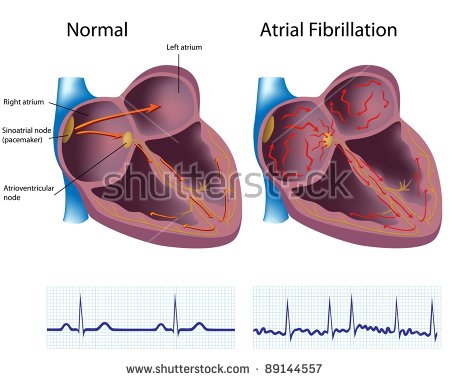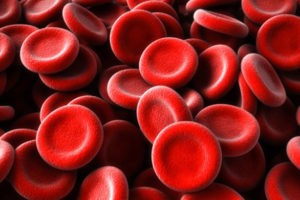
Recently Diagnosed or Relapsed? Stop Looking For a Miracle Cure, and Use Evidence-Based Therapies To Enhance Your Treatment and Prolong Your Remission
Multiple Myeloma an incurable disease, but I have spent the last 25 years in remission using a blend of conventional oncology and evidence-based nutrition, supplementation, and lifestyle therapies from peer-reviewed studies that your oncologist probably hasn't told you about.
Click the orange button to the right to learn more about what you can start doing today.
- You are here:
- Home »
- Blog »
- Multiple Myeloma »
- My Afib- Ablation, Drugs, Nothing?!?!
My Afib- Ablation, Drugs, Nothing?!?!

“Compared with standard drug therapy, catheter ablation improved all-cause mortality and quality of life in patients with atrial fibrillation and heart failure…”
A diagnosis of multiple myeloma in early 1994 led to the FDA approved standard-of-care therapy plan in 1995,96, and palliative radiation in ’96. The SOC therapy plan for newly diagnosed MM patients is
- Induction therapy
- Autologous Stem Cell Transplant
- Maintenance Therapy
I faced two challenges. First, I reached end-stage MM in September of 1997 and second, I woke up one December morning in 2010, fully 15 years AFTER my induction therapy and ASCT and flipped into chronic atrial fibrillation-Afib.
The Afib was a symptom of my chemotherapy-induced cardiomyopathy diagnosis. While sitting on an outpatient bed, a nurse and I stuck up a conversation. She told me that many people live long happy lives living with chronic atrial fibrillation .
The studies linked below are a summary of my two conventional therapy options- cardiac ablation or drug therapy. Each designed to turn my Afib back into regular sinus rhythm.
Skip ahead to 2022. I decided that conventional therapies involved too much risk and too little reward for me. I have been living with chronic Afib since 12/10.
I am often short of breath. But I exercise moderately daily, I eat a heart healthy diet, supplement with heart healthy nutritional supplements, in short, live a normal life.
No ablation. No drugs.
The article linked and excerpted below makes it seem as though patients with atrial fibrillation (A-Fib) have only two choices-catheter ablation or drug therapy. When I developed Afib, being a relatively young man (50) and a cancer survivor who was burned badly by conventional oncology, I didn’t want to risk the short, long-term or late stage side effects of catheter ablation or drug therapy.
Further, I understood the risk of stroke (my ejection fraction is/was 50-55) and I was willing and able to undergo those daily, evidence-based, non-toxic therapies that would lower my risk of stroke
. I am a long-term cancer survivor living with a number of long-term side effects from my chemo and radiation that I underwent in 1995. Daily modest exercise, nutritional supplementation, fruits/veggies, etc. were already included in my daily routine.
Let me be clear. Once you develop heart disease in the form of A-Fib, there are risks with all therapies as far as I can tell. I believe the risks of the many evidence-based, non-toxic, non-conventional therapies that I do for myself are preferable to the side effects and risks that come with either/or catheter ablation or drug therapy.
Do you have atrial fibrillation? What therapy are you consdidering? Scroll down the page, post a question or comment and I will reply to you ASAP.
Thanks
David Emerson
- MM Survivor
- MM Cancer Coach
- Director PeopleBeatingCancer
Recommended Reading:
Cardiac Ablation
“Risks of Cardiac Ablation
Any procedure has risks. Problems with cardiac ablation can include:
- Bleeding or infection where the catheter went in
- Damaged blood vessels if the catheter scrapes them
- Arrhythmias caused by damage to your heart’s electrical system
- Blood clots in your legs or lungs
- Heart damage, like punctures or damaged valves
- Stroke or heart attack
- Narrowing of the veins between your lungs and heart
- Kidney damage from the dye
- Radiation
- Death
What is the success rate of ablation of atrial fibrillation (Afib) (AF) and who are potential candidates?
“Patients with paroxysmal AF in whom antiarrhythmic drug therapy does not elicit a response are potential candidates for ablation of AF. The threshold for catheter ablation has fallen over the years and is likely to continue to fall. Ablation of persistent AF is more complex and yields lower success rates. Therefore, RFA is generally considered only if antiarrhythmic drugs fail in patients with persistent AF who remain severely symptomatic despite adequate ventricular rate control. [135]
The success rate of catheter ablation in the treatment of AF varies depending on the type and duration of AF (ie, paroxysmal vs persistent), structural remodeling of the heart, and the technique and expertise of the cardiac electrophysiologist, but it usually ranges from 60-80% over 1-2 years of follow-up…”
Catheter ablation superior to drug therapy for atrial fibrillation, heart failure
“Compared with standard drug therapy, catheter ablation improved all-cause mortality and quality of life in patients with atrial fibrillation and heart failure, according to findings published in Annals of Internal Medicine.
“Atrial fibrillation is associated with thromboembolic stroke, systemic embolism and decompensated heart failure requiring hospitalization,”
“Catheter ablation is an established therapeutic strategy for symptomatic, drug-refractory atrial fibrillation,” they added. “However, current guidelines support atrial fibrillation ablation with caution” in certain patients.
Turagam and colleagues reviewed six randomized controlled trials to compare the benefits and harms of catheter ablation vs. standard drug therapy (rate or rhythm control medications) for adult patients with atrial fibrillation and heart failure (n = 775).
The researchers found that treatment with atrial fibrillation ablation decreased all-cause mortality (9% vs. 17.6%; RR = 0.52; 95% CI, 0.33-0.81) and heart failure hospitalizations (16.4% vs. 27.6%; RR = 0.6; 95% CI, 0.39-0.93) compared with drug therapy…
Patients in the ablation groups were more likely to experience serious adverse events than those in the drug therapy groups, but differences were not statistically significant (7.2% vs. 3.8%; RR = 1.68; 95% CI, 0.58-4.85).
“The long-term benefits in all-cause mortality, heart failure hospitalizations and overall clinical outcomes must be weighed in clinical decision making…”


